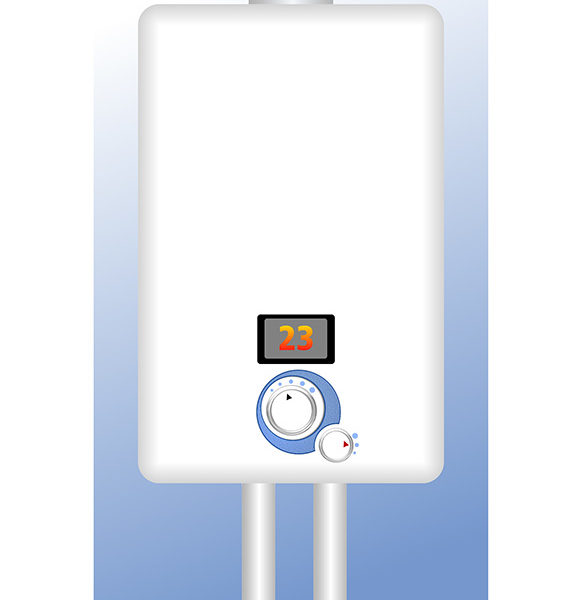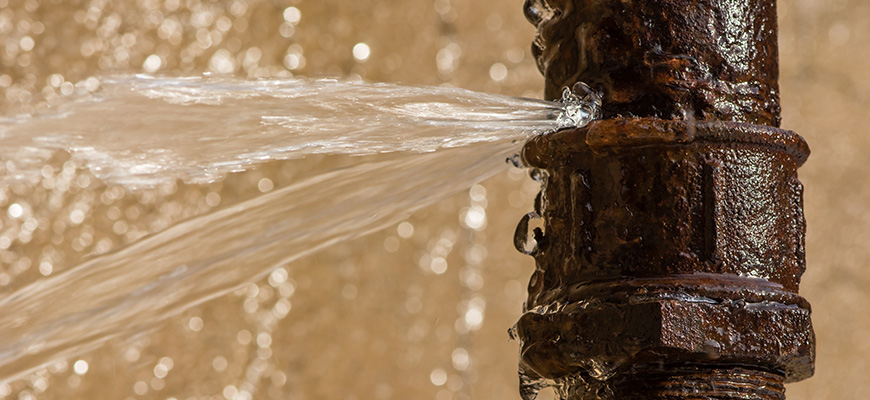Are you tired of running out of hot water during your morning shower or waiting endlessly for the tank to heat up again? Well, it’s time to consider making the switch to a tankless water heater. Not only do these innovative systems provide endless hot water on demand, but they also offer a host of cost-saving benefits that can help you save money in the long run. In this article, we’ll explore the many advantages of going tankless, from their energy efficiency and space-saving design to the reduced maintenance required. We’ll also take a closer look at the different types of tankless heaters available, their installation process, and the potential cost savings that come with making the switch. So, if you’re ready to say goodbye to the old, bulky tank-style water heater and embrace a more efficient and cost-effective system, read on to learn everything you need to know about going tankless.
How do Tankless Water Heaters work
Tankless water heaters, also known as on-demand water heaters, work by heating the water directly as it flows through the unit. Unlike traditional tank-style water heaters, which store and heat a large volume of water, tankless heaters only heat the water when you need it. This means that you never run out of hot water, and you don’t have to wait for the tank to heat up again after it’s been depleted.
When you turn on the hot water tap, cold water flows into the unit and is heated by either a gas burner or an electric element. The water is then delivered to the faucet or showerhead at the desired temperature. Since tankless heaters only heat the water as it’s being used, they are much more energy-efficient than traditional water heaters. This can lead to significant cost savings on your monthly energy bills, especially if you use a lot of hot water.
It’s also worth noting that tankless heaters come in a variety of sizes to suit different household needs. If you have a large family or use a lot of hot water, you can opt for a larger unit with a higher flow rate. However, if you live alone or in a small apartment, a smaller unit with a lower flow rate may be more suitable.
Benefits of switching to a Tankless Water Heater
There are numerous benefits to switching to a tankless water heater, including:
Energy efficiency
As mentioned earlier, tankless water heaters are much more energy-efficient than traditional water heaters. Since they only heat the water as it’s being used, there’s no need to keep a large volume of water constantly heated. This can lead to significant cost savings on your monthly energy bills.
Endless hot water
One of the most significant advantages of tankless water heaters is that they provide endless hot water on demand. Since there’s no tank to deplete, you can take a long shower or fill up the bathtub without worrying about running out of hot water.
Space-saving design
Tankless water heaters are much smaller and more compact than traditional water heaters, which can take up a lot of space in your home. Tankless heaters can be installed on a wall or in a closet, freeing up valuable floor space.
Reduced maintenance
Traditional water heaters require regular maintenance, such as flushing the tank to remove sediment buildup. Tankless heaters, on the other hand, require very little maintenance. Since there’s no tank to collect sediment, there’s no need to flush the unit.
Longer lifespan
Tankless water heaters typically have a longer lifespan than traditional water heaters. While traditional heaters typically last 10-15 years, tankless heaters can last up to 20 years or more with proper maintenance.
Cost-effectiveness of a Tankless Water Heater
While tankless water heaters may have a higher upfront cost than traditional water heaters, they can actually be more cost-effective in the long run. Here are some of the ways that a tankless water heater can save you money:
Lower energy bills
As mentioned earlier, tankless water heaters are much more energy-efficient than traditional water heaters. This can lead to significant cost savings on your monthly energy bills, especially if you use a lot of hot water.
Longer lifespan
Since tankless water heaters typically last longer than traditional water heaters, you won’t have to replace the unit as often. This can save you money on replacement costs and installation fees.
Rebates and tax credits
Many utilities and government agencies offer rebates and tax credits for homeowners who switch to a tankless water heater. These incentives can help offset the upfront cost of the unit and make it more affordable.
Reduced maintenance costs
Since tankless heaters require less maintenance than traditional heaters, you’ll save money on maintenance costs over the lifespan of the unit.
Types of Tankless Water Heaters
There are two main types of tankless water heaters: gas-powered and electric-powered. Here’s a closer look at each type:
Gas-powered
Gas-powered tankless water heaters are the most common type of tankless heater. They are powered by natural gas or propane and are typically more energy-efficient than electric-powered models. Gas-powered heaters can provide a higher flow rate, making them ideal for larger households or homes with multiple bathrooms.
Electric-powered
Electric-powered tankless water heaters are powered by electricity and are best suited for smaller households that use less hot water. They have a lower flow rate than gas-powered models and may not be able to provide enough hot water for larger households.
Factors to consider before switching to a Tankless Water Heater
Before making the switch to a tankless water heater, there are a few factors to consider:
Upfront cost
Tankless water heaters can have a higher upfront cost than traditional water heaters. However, as we’ve discussed earlier, they can be more cost-effective in the long run.
Installation
Tankless water heaters require professional installation, which can add to the upfront cost. However, installation is typically straightforward and can be completed in a few hours.
Gas or electric
As we’ve discussed earlier, there are two main types of tankless water heaters: gas-powered and electric-powered. You’ll need to consider which type is best suited for your household’s needs.
Flow rate
Tankless water heaters come in different sizes with different flow rates. You’ll need to consider your household’s hot water usage and choose a unit with an appropriate flow rate.
Installation and Maintenance of a Tankless Water Heater
Tankless water heaters require professional installation, which typically involves connecting the unit to your home’s gas or electric supply and water line. The installation process can take a few hours and may involve upgrading your home’s gas or electric supply if necessary.
Maintenance for tankless water heaters is minimal. You’ll need to flush the unit annually to remove any sediment buildup and replace the filter as needed. Other than that, there’s very little maintenance required.
Tankless Water Heater vs Traditional Water Heater – Pros and Cons
Here’s a quick overview of the pros and cons of tankless water heaters compared to traditional water heaters:
Tankless Water Heater Pros:
- Energy-efficient
- Endless hot water
- Space-saving design
- Reduced maintenance
- Longer lifespan
Tankless Water Heater Cons:
- Higher upfront cost
- Professional installation required
- Gas or electric supply may need to be upgraded
- Lower flow rate for electric-powered models
Traditional Water Heater Pros:
- Lower upfront cost
- Easy to install
- Suitable for households with low hot water usage
Traditional Water Heater Cons:
- Not energy-efficient
- Limited hot water supply
- Bulky and takes up a lot of space
- Requires regular maintenance
Frequently asked questions about Tankless Water Heaters
How much money can I save with a tankless water heater?
The amount of money you can save with a tankless water heater will depend on your household’s hot water usage and energy costs. However, many homeowners report savings of up to 30% on their energy bills after switching to a tankless water heater.
How long does a tankless water heater last?
Tankless water heaters typically last up to 20 years or more with proper maintenance.
Can I install a tankless water heater myself?
No, tankless water heaters require professional installation. Attempting to install the unit yourself can be dangerous and may void the warranty.
Conclusion
Switching to a tankless water heater can provide numerous benefits, from endless hot water on demand to energy savings and reduced maintenance. While there may be a higher upfront cost and professional installation required, a tankless water heater can be a cost-effective and efficient option in the long run. Consider your household’s hot water usage and needs, and explore the different types of tankless water heaters available to choose the best option for your home.
Click to Learn More!


